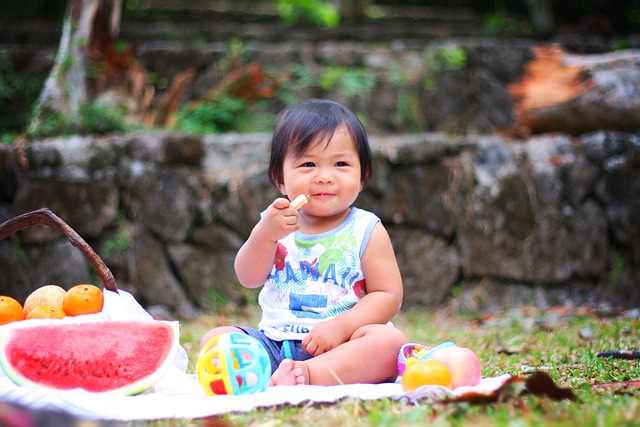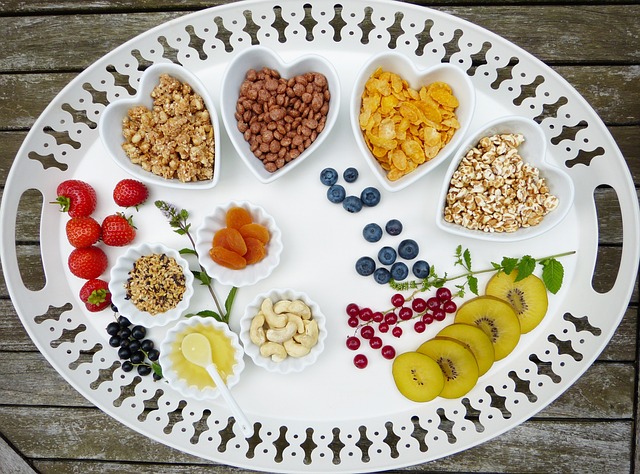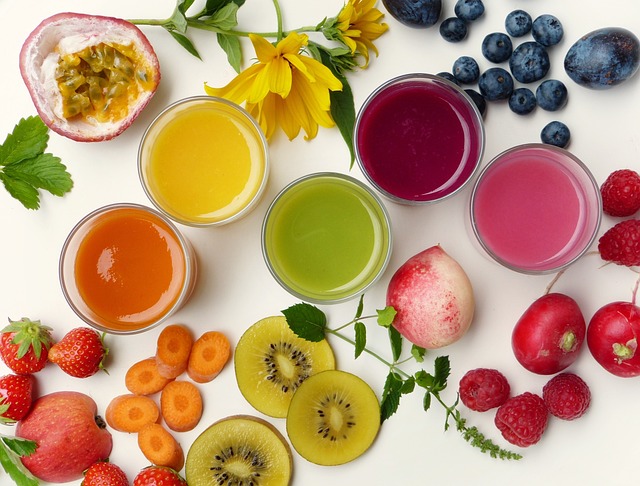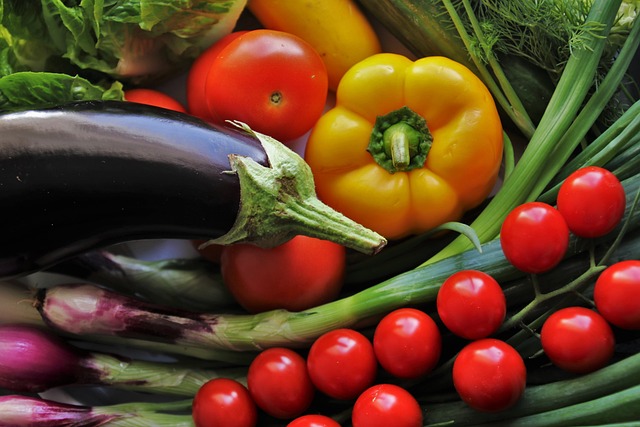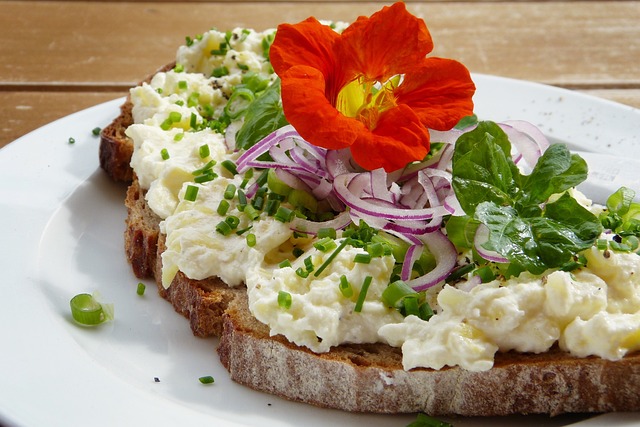Vegan Cooking for Babies: Starting the Food Journey Right
In today’s blog post, we will explore the importance of a healthy and balanced diet for babies and discuss the benefits of vegan cooking specifically tailored for their nutritional needs. We will also provide a brief overview of the food journey that babies go through as they transition from breast milk or formula to solid foods.
Ensuring that babies receive a healthy and balanced diet is crucial for their growth, development, and overall well-being. Good nutrition during infancy sets the foundation for a lifetime of healthy eating habits. By introducing a vegan diet to babies, parents can provide them with a wide range of nutrients while promoting a compassionate lifestyle.
The benefits of vegan cooking for babies are numerous. Not only does it support their physical growth and development, but it also promotes the growth of a healthy microbiome, strengthens the immune system, and reduces the risk of developing chronic diseases later in life. Vegan cooking also helps babies develop a taste for a variety of plant-based foods, expanding their palate and promoting a love for fruits, vegetables, whole grains, and legumes.
Now, let’s take a brief overview of the food journey for babies. It begins with the introduction of solid foods, usually around six months of age, while still continuing breast milk or formula as their primary source of nutrition. As babies grow, they gradually transition from pureed foods to mashed foods and eventually to a diet that includes a variety of textures and flavors. This food journey is an exciting and important time for babies as they discover new tastes and learn to eat independently.
In the following sections of this blog post, we will delve deeper into the specifics of vegan cooking for babies. We will discuss when to start introducing solid foods, explore essential nutrients for babies on a vegan diet, provide safe and nutritious first food options, and offer tips for a smooth transition to solid foods. So let’s get started on this exciting and fulfilling journey of vegan cooking for babies, ensuring they start their food journey right.
Table of Contents
When to Start Introducing Solid Foods
Introducing solid foods to babies is an important milestone in their development and nutrition. According to guidelines and recommendations from experts, it is generally recommended to start introducing solid foods around 6 months of age. However, it is important to note that every baby is unique, and it is essential to pay attention to their individual readiness cues.
Signs that a baby may be ready for solid foods include being able to sit up with minimal support, showing an interest in others’ food, and being able to hold their head steady. It is important to wait until these signs are present before introducing solids to ensure that the baby’s digestive system is mature enough to handle solid foods.
During this transition to solid foods, it is important to keep in mind that breast milk or formula should still be the primary source of nutrition for babies. The introduction of solid foods is meant to complement and gradually replace milk feeds, not to replace them entirely.
When starting the introduction of solid foods, it is recommended to begin with simple, single-ingredient purees or mashed foods. This allows babies to explore different tastes and textures while ensuring that potential allergies or intolerances can be identified. As the baby grows and becomes more comfortable with solids, a wider variety of foods can be introduced, including vegetables, fruits, and grains.
It is important to note that babies may not immediately take to solid foods, and it may take some time for them to develop a liking for certain tastes and textures. Patience and persistence are key during this phase, as it is a time of exploration and learning for both the baby and the parent.
By following the recommended guidelines and paying attention to the baby’s readiness cues, parents can ensure a smooth and healthy transition to solid foods for their little ones. Introducing solid foods in a thoughtful and nutritious manner sets a solid foundation for their lifelong relationship with food and promotes healthy eating habits early on.
Vegan Food Essentials for Babies
When it comes to feeding babies on a vegan diet, it is important to ensure that they are receiving all the necessary nutritional requirements for healthy growth and development. While some may have concerns that a vegan diet may lack certain essential nutrients, with proper planning and attention, it is completely possible to provide a balanced vegan diet for babies.
One key aspect of a vegan diet for babies is understanding the key nutrients and their sources. It is crucial to ensure that babies are receiving adequate amounts of protein, iron, calcium, vitamin D, and vitamin B12. These nutrients can be found in plant-based sources such as legumes, tofu, fortified plant milk, leafy greens, and fortified cereals.
To ensure adequate nutrient intake, there are a few tips that can be followed. First, it is recommended to introduce a variety of foods to babies, as this will help provide a wide range of nutrients. Additionally, it is important to pay attention to portion sizes, as babies have different energy needs compared to adults. It may also be beneficial to consult a pediatrician or a registered dietitian to ensure that the baby’s nutrient needs are being met.
While providing a balanced vegan diet is crucial, it is important to note that breastfeeding or formula feeding should be the primary source of nutrition for babies until they reach around six months of age. After that, solid foods can be gradually introduced while still ensuring the inclusion of key nutrients in their diet.
In conclusion, feeding babies on a vegan diet requires attention to their nutritional requirements and key nutrients to ensure a balanced diet. By introducing a variety of plant-based foods and consulting professionals when needed, it is completely possible to provide adequate nutrient intake for babies on a vegan diet.
Safe and Nutritious Vegan First Foods
When it comes to introducing solid foods to babies, it’s essential to prioritize their safety and ensure they receive proper nutrition. For vegan parents, this means finding suitable soft, pureed foods that meet their little ones’ needs.
One of the advantages of a vegan diet is the wide variety of vegetables, fruits, and grains that can be incorporated into a baby’s meals. These plant-based options are packed with essential nutrients and can provide a solid foundation for their growing bodies.
To ensure a balanced vegan diet for babies, it’s important to consider key nutrients like iron, calcium, protein, and omega-3 fatty acids. Iron-rich foods such as legumes, tofu, and leafy greens can help prevent iron deficiency, while calcium sources like fortified plant-based milk and leafy greens can contribute to healthy bone development.
When it comes to introducing these foods to babies, it’s crucial to consider their texture and adjust accordingly. Soft, pureed versions of cooked vegetables, fruits, and grains can be easily consumed by babies who are just starting their food journey.
To make the process easier, there are numerous baby-friendly vegan recipes and cooking techniques available. From vegetable purees to fruit compotes and grain porridge, parents have a wide range of options to choose from. These recipes prioritize the use of whole and natural ingredients, avoiding added sugars and preservatives.
By introducing safe and nutritious vegan first foods, parents can ensure their babies receive the vital nutrients they need while also encouraging a healthy relationship with food. Starting their food journey with a variety of plant-based options sets the stage for a lifetime of nutritious eating habits.
In the next section, we’ll explore the building blocks of a balanced vegan meal plan for babies, emphasizing the importance of combining different food groups for optimal nutrition.
Building Blocks of a Balanced Vegan Meal Plan
A balanced vegan meal plan is crucial for ensuring that babies receive the necessary nutrients for their growth and development. Variety is key when it comes to a baby’s diet, as it exposes them to a wide range of nutrients and flavors. By including diverse food groups, parents can create nutritious meals that cater to their baby’s dietary needs.
Including a variety of food groups in a balanced vegan meal plan ensures that babies receive a sufficient intake of key nutrients. Some important food groups to include are fruits, vegetables, grains, protein sources, and healthy fats. Fruits and vegetables provide essential vitamins, minerals, and antioxidants, while grains offer energy and fiber. Protein sources, such as legumes and tofu, are important for growth and muscle development, and healthy fats from foods like avocado and nuts support brain development.
To create nutritious meals, it’s important to combine various food groups. For example, parents can prepare a delicious and balanced meal by combining cooked quinoa with steamed vegetables like carrots and broccoli. Adding a source of plant-based protein like chickpeas can further enhance the nutritional value of the meal.
Creating a well-rounded meal plan for vegan babies requires thoughtful planning and consideration of their nutrient needs. Parents should aim to include a variety of fruits, vegetables, grains, protein sources, and healthy fats in their baby’s meals. By doing so, they can ensure that their baby receives all the necessary building blocks for a balanced vegan diet. Remember, introducing babies to a diverse range of foods early on can help shape their preferences and promote healthy eating habits for life.
Tips for a Smooth Transition to Vegan Solid Foods
Making the transition from breastfeeding or formula to solid foods can be an exciting yet challenging milestone for both parents and babies. Here are some strategies to help ease the process and make it a smooth journey into vegan solid foods.
Ease the Transition
When introducing solid foods to your baby, it’s important to take it slow and gradually increase the amount and variety of foods. Start by offering mashed or pureed fruits and vegetables that are easy to digest and gentle on their developing digestive systems. By slowly introducing new flavors and textures, you can help your baby acclimate to the changes in their diet.
Handling Feeding Difficulties
Some babies may experience difficulties during the transition to solid foods. They may be reluctant to eat or show signs of aversion to certain textures. Patience and persistence are key during this phase. Offer a variety of foods and give your baby time to explore and adjust to the new experience.
If your baby is having difficulty swallowing or seems to be struggling with certain textures, consult with a healthcare professional for guidance. They can provide advice on appropriate feeding techniques and may recommend modifying the texture or consistency of the food to make it easier for your baby to manage.
Food Allergies and Intolerances
It’s important to be aware of potential food allergies and intolerances when introducing new foods to your baby’s diet. Allergies can develop at any age, so it’s essential to monitor your baby for any adverse reactions after introducing a new food.
Common allergens to watch out for include dairy, eggs, soy, wheat, peanuts, and tree nuts. If you suspect your baby has a food allergy or intolerance, consult with a healthcare professional for appropriate testing and guidance.
Promoting Healthy Eating Habits
The early stages of a baby’s food journey provide an excellent opportunity to establish healthy eating habits. Offer a variety of nutrient-dense vegan foods to ensure your baby receives all the necessary nutrients for healthy growth and development.
- Encourage self-feeding by offering finger foods that are easy to grasp and chew.
- Limit the use of added sugars, salts, and processed foods.
- Be a positive role model by eating a diverse and balanced vegan diet yourself.
By introducing wholesome vegan foods early on, you set the foundation for a lifetime of healthy eating habits and nourishment.
In conclusion, transitioning to vegan solid foods can be an exciting adventure for both parents and babies. By following these tips, you can ease the transition, address any feeding difficulties, be mindful of potential allergies and intolerances, and promote healthy eating habits from the start. Embrace this journey with joy and confidence as you nourish your baby with delicious and nutritious vegan meals.
Vegan Snacks and Finger Foods for Babies
When it comes to introducing solid foods to babies, snacks and finger foods play a vital role in their overall nutrition and development. As parents, we want to ensure that these snacks are not only delicious but also healthy and suitable for our little ones.
Introducing vegan snacks and finger foods to babies offers a wide range of options that are both nutritious and exciting. These snacks are not only packed with essential nutrients, but they also encourage self-feeding and help develop fine motor skills.
During on-the-go moments or snack time, it’s important to have healthy options readily available. It’s a good idea to keep a selection of fresh fruits, such as sliced apples or bananas, as well as veggie sticks like carrots or cucumbers, easily accessible for quick grab-and-go options.
For homemade vegan snacks, the possibilities are endless. You can create delicious and nutritious snacks using simple ingredients such as oats, nut butters, and fruits. Consider making homemade energy balls using dates, nuts, and seeds, or whip up some sweet potato fries for a fun and tasty finger food. These snacks not only provide vitamins and minerals but also introduce a variety of flavors and textures to your baby’s palate.
Here are a few recipe ideas to get you started with homemade vegan snacks for your little one:
- Banana Oatmeal Cookies: Mash one ripe banana and mix it with rolled oats and a tablespoon of nut butter. Form small cookie shapes and bake them until golden brown. These soft and chewy cookies are perfect for teething babies.
- Avocado and Chickpea Hummus: Blend half an avocado, cooked chickpeas, a squeeze of lemon juice, and a tablespoon of tahini until smooth. Serve with vegetable sticks or whole grain crackers for a healthy and creamy snack.
- Sweet Potato and Cinnamon Muffins: Puree cooked sweet potatoes and mix them with whole wheat flour, a dash of cinnamon, and a sweetener of your choice. Bake them into mini muffins for a soft and flavorful snack option.
Remember to always supervise your baby while they are eating snacks and finger foods. Introducing vegan snacks at an early age helps promote healthy eating habits and encourages a love for nutritious foods. So get creative in the kitchen and enjoy exploring the wonderful world of vegan snacks and finger foods for your little one!
Meal Planning and Prepping for Vegan Babies
Meal planning and prepping can be a game-changer for busy parents, especially when it comes to feeding their vegan babies. By investing some time and effort into meal planning, parents can ensure that their little ones are getting all the nutrients they need in a balanced and healthy way.
Importance of Meal Planning and Prepping
At first, it may seem overwhelming to plan and prepare meals ahead of time, but the benefits are well worth it. Meal planning helps ensure that your baby’s diet is varied and nutritionally balanced. It allows you to include a variety of fruits, vegetables, grains, and plant-based protein sources in their meals.
By having a well-thought-out meal plan, busy parents can save time and energy throughout the week. It eliminates the daily stress of figuring out what to cook and what ingredients to buy. With a plan in hand, parents can streamline their grocery shopping, cook in bulk, and even freeze meals for later use.
Tips for Efficient Meal Planning and Prepping
To make meal planning and prepping for your vegan baby more efficient, consider the following tips:
- Batch Cooking: Double or triple the recipe quantities and freeze the extra portions. This way, you’ll have ready-made meals for those busy days when you don’t have time to cook from scratch.
- Stock Up on Staples: Keep your pantry stocked with essentials like grains, legumes, nuts, and seeds. These ingredients are versatile and can be used in a variety of baby-friendly vegan recipes.
- Pre-Cut and Wash Produce: Dedicate some time to washing and pre-cutting your fruits and vegetables. This will help you save time during meal preparation and make it easier to grab healthy snacks on the go.
- Plan for Leftovers: Be strategic about using leftovers. For example, leftover roasted vegetables can be mashed and mixed with cooked quinoa or lentils to create a delicious and nutritious baby meal.
- Use a Meal Planning App: There are several meal planning apps available that can help you stay organized and plan your baby’s meals efficiently. These apps often provide recipe inspiration and grocery list features to make your life easier.
Recipe Inspiration and Resources for Meal Planning
When it comes to finding recipe inspiration for your vegan baby’s meals, there are plenty of resources available. Books, websites, and social media platforms are great sources for baby-friendly vegan recipes. Look for recipes that are age-appropriate and consider adapting them to suit your baby’s taste preferences.
Moreover, many vegan food bloggers and influencers share their meal planning journeys and provide valuable tips and tricks. Their experience and expertise can serve as a great source of inspiration and guidance.
In conclusion, meal planning and prepping are crucial for busy parents embarking on the vegan cooking journey for their babies. By investing time in meal planning, parents can ensure their little ones receive a nutritionally balanced and varied diet. With these tips and resources, you can efficiently plan and prepare vegan meals for your baby, making the journey of introducing solid foods a smooth and enjoyable one.
Conclusion
In conclusion, vegan cooking for babies offers numerous benefits for their overall health and wellbeing. By providing a healthy and balanced diet, parents can ensure their babies receive all the necessary nutrients for their growth and development. Introducing solid foods in a thoughtful and nutritious manner is of utmost importance, as it sets the foundation for their future eating habits.
One of the main advantages of vegan cooking for babies is the emphasis on whole, plant-based foods. This means that their diet will be rich in fruits, vegetables, legumes, whole grains, and nuts/seeds, which are all excellent sources of essential nutrients such as fiber, vitamins, minerals, and antioxidants. These nutrients are crucial for supporting their immune system, brain development, and overall growth.
When introducing solid foods to babies, it is important to consider their readiness cues. Every baby develops at their own pace, and it’s crucial to wait until they are showing signs of good head control, ability to sit up with minimal support, and a keen interest in food. This ensures that they are mentally and physically prepared for the transition from breast milk or formula to solid foods.
As parents embark on the vegan cooking journey for their babies, they should strive to include a variety of foods in their meal plan. This helps expose babies to different flavors and textures, which can lead to a more diverse palate and a greater acceptance of a wide range of foods as they grow older. Including food groups such as fruits, vegetables, legumes, grains, and healthy fats is crucial for providing a well-rounded and balanced vegan meal plan for babies.
Transitioning to solid foods can sometimes be challenging, especially if babies experience difficulties with feeding or have food allergies or intolerances. However, with patience and persistence, parents can overcome these obstacles and promote healthy eating habits early on. By offering a wide array of vegan snacks and finger foods, parents can ensure their babies have nutritious options for on-the-go or snack time.
Lastly, meal planning and prepping can be a game-changer for busy parents. By dedicating some time to plan and prepare meals in advance, parents can ensure that their babies are receiving the necessary nutrients from their vegan diet. There are plenty of resources available, including recipe inspiration and guidance, to support parents in their meal planning efforts.
In conclusion, by following these guidelines and embarking on the vegan cooking journey, parents can provide their babies with a solid foundation for a lifetime of healthy eating habits. The benefits of vegan cooking for babies extend beyond the early years and can positively impact their health and wellbeing throughout their lives. So, embrace the adventure of vegan cooking for your little one and enjoy watching them thrive on a nutritious and delicious plant-based diet.

